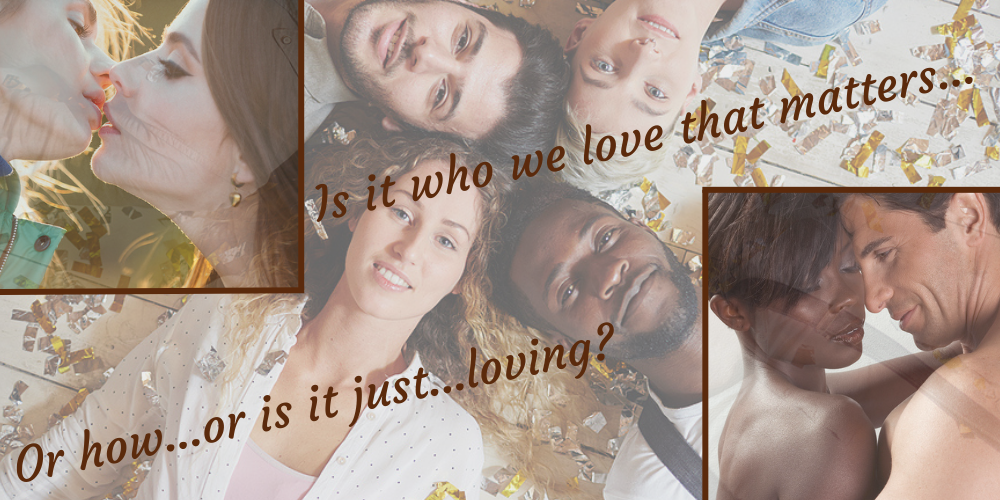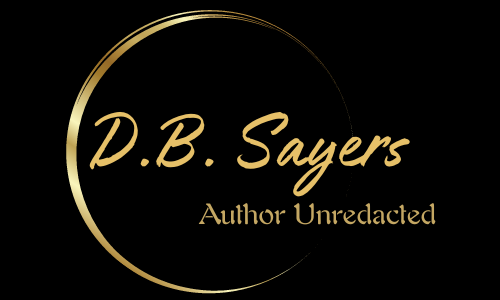
Is love not the gift we give ourselves…and each other?
Relationships, Situationships and Slippery Love
Prelude
Recently, Dr. T.J. Jordan posted a thought-provoking article in Medium, an online magazine that I write for and (obviously) also read, entitled The Rise of the Situationship. I’ve linked to it so everyone who reads this post can access it easily. It’s an evocative thought piece and well worth a read. And it got me thinking about relationships and how they’re being shaped by our time.
Nobody asked me, but…
As readers of my earlier posts know, I believe we are in the midst of multiple paradigm shifts, all happening at once. Shifts likely to prove as transformational as the Industrial Revolution, but on a scale that dwarfs it. Is rapid technological change driving social change? Or are technological and social change independent variables that are simply co-incident in time and space?
As someone who believes nothing happens outside of a context, I’m inclined to view our time as a maelstrom of concurrent, mutually interdependent variables twisted together in ways none of us understand perfectly, never mind being able to predict.
That said, from the articles I’m reading here on Medium, I’m guessing most of us might be content to agree “it’s complicated.” So maybe we should let it go at that, pending greater clarity. Which brings me to my (admittedly) roundabout segue to Dr. Jordan’s article.
Relationships Vs. Situationships
Dr. Jordan’s article opens with:
“Once upon a different century, we humans relied on “husband” and “wife” to convey the ultimate message of connection and commitment. But then we woke to the fact that many important relationships exist in worlds where these terms don’t fit. And that many marriages never embodied the ultimate intimacy in the first place.”
Personally, I might argue that many of us are still not “woke” to the fact that marriage isn’t a universal best-case. But most of us would (I think) agree that for much of our history, marriage has been the default paradigm of commitment and connection.
But since I’ve been alive, a proliferation of modifiers associated with marriage has sprung up. These modifiers suggest to me that marriage — as we’re accustomed to think of it — may have become too much (or not enough) for some. An incomplete list of marital modifiers includes polyamory, polyfidelity, ethical non-monogamy, monogamish and open marriages. Then we have a few terms I think of as “free radicals,” in the relationship milieu. Free radicals in that they are neither monogamy nor marriage. They include NSA (No Strings Attached), FWB (Friends With Benefits) to which we now apparently add the anodyne “Situationship.”
For those unfamiliar with the term (as I was before I read Dr. Jordan’s article) the Urban Dictionary defines a Situationship as: “less than a relationship, but more than a booty call. A situationship refers to a romantic relationship that is, and will remain, undefined.”
The Promise and Problem with Labels
Dr. Jordan goes on to observe: “We struggle for labels in a world where we fight against labeling.”
I found myself humming bars of the Eagles’ “Learn to be Still,” from their 1994 “Unplugged” collection, and (subsequently) their “Hell Freezes Over” release. Relevant lines being:
There are so many contradictions
In all these messages we send
[We} Keep asking
How do I get outta here
Where do I fit in?
Written by Don Henley and Stanley Lynch.
Are we not all self-contained paradoxes, in the final analysis? Do not most of us want it both ways? Needing the stability and predictability of the familiar while craving the ambiguity of unknown potential? We try to shoehorn both in our loves and (statistically) “fail” as often as we succeed.
And stung by that failure, our stormy hostility or feigned bravado in the face of disappointment, confirms the obvious. Most of us need connection in some form. But wanting it both ways, do we then pervert the beauty of our connections with other desires and hope for the best? Or do we alternatively load our partners up with our own inadequacies, expecting them to complete us — often as a means of ignoring (or avoiding) our own inadequacies?
I suspect our increasingly diversified experiments into with whom and how we relate is the canary in the coalmine. Perhaps it’s a gut recognition that marriage as we are inclined to view it may not be able to meet the needs of a growing number of men and women. Especially in today’s world of repeatedly and rapidly morphing social signposts.
Slippery Love
I’m hardly the first to observe that the English language has definitional shortcomings with respect to “love.” Consulting Merriam-Webster’s definition of love illustrates what I mean. We have nine contextually dependent definitions for the noun alone. Love is one of those words that resembles nothing so much as “jack of all trades, master of none.” It does a lot of work… not always well. It’s…slippery.
So, when I say, “I love you?” What kind of love do I mean? You could ask me for clarification, of course. And depending on my command of language, I might even do an excellent job of explaining. And even if my words at the time are congruent with your own definition, the feelings my explanation describe will evolve (or devolve) over time. As will (probably) yours.
Dr. Jordan wraps her article with the following:
“But our track record for happy, loving, sexual marriages is not great. And casual hookups leave us yearning for the emotional depth that increases fulfillment as well as life expectancy.”
Is there a sweet spot between the free-wheeling hedonism of sensation at the expense of everything else and the (sometimes) frozen emotional growth and predictability so common in traditional marriage?
Someone reading this right now is thinking: “My marriage isn’t frozen.” Great. If it’s working for you, then carry on. For the same reason we get to choose the myths by which we order our lives, we are free to choose the relationship model(s) that contribute to fulfillment as we define it. If a “situationship,” feels right for now, that’s a choice you’re empowered to make on your way to whatever your sovereign spirit tells you is fulfilling.
Neither marriage — nor any other single relationship model — is for everyone. Or it may be, until it isn’t. Opting out of an institution pushed by the web of social myth that is modern society is not prima facie evidence that you are wrong. It’s okay for us to be who (and where) we are in the moment. Maybe there’s no longer a single word that can embrace all our needs. And maybe that’s okay, too. Namasté.

It’s so depressing that relationships have gotten so complex. But I feel you, Dirk.
Hi Kenisha: I think complexity has become the leit motif of our age. But I wonder if we aren’t making things harder than they need to be? Thanks for stopping by and spending a few minutes. Come by any time and feel free to comment. Best wishes, Dirk
I don’t agree with much of anything in this post, except how you end it.
Hi Lenny: And that’s the beauty of living where and how we do. We can agree and agree to disagree. Thanks for taking the time to read and comment.
Dirk
I really like reading through a post that can make men and women think. Also, thank you for allowing me to comment!
Thanks for stopping by, Alejandra.
This is my first visit at here and i am really glad I stopped by.
Thanks for visiting, Rosalia, and taking the time to comment. Come back any time.
I can’t express how much I admire the effort the author has put into creating this exceptional piece of content. The refreshing take on an abstract topic like love really resonated with me. Looking forward to more!
Thanks, Angela. Make it a great day.
This design is incredible! You definitely know how to keep a reader entertained. Between your wit and thoughtful posts (like this one) I was almost moved to start my own blog (well, almost…HaHa!) You’re right about how far too many of us throw “love” around like it has only one definition. Anyway. Excellent job. I really enjoyed what you had to say, and more than that, how you presented it. Too cool!
Thanks, Gloria. I appreciate you taking the time to read and comment. Make it a great day.
I just couldn’t depart your web site prior to suggesting that I really love your content. I’ll be back continuously for your new posts.
Thanks, Vinsent. Make it a great day.
It’s a shame you don’t have a donate button! I’d most certainly donate to this brilliant blog! I guess for now i’ll settle for bookmarking and adding your RSS feed to my Google account. I look forward to new updates and will share this blog with my Facebook group. Talk soon!
Hello Travis: Thanks for stopping by my site and taking the time to read and comment. If you like my blog, you’ll love my longer form fiction. Go to my books page and take your pick. I would recommend Through the Windshield. It’s my anthology of short stories and a great introduction to my writing. Make it a great day.
I really like your wordpress template, exactly where did you obtain it through?
Hello Lighthorse: Actually it’s my design. Thanks for stopping by and commenting.
I do not even know how I wound up here, but loved this post. Cheers!
Thanks, Linda. Make it a great day.
Interesting post. I’ve joined your feed and look forward to more of your work. I’ve also shared your web site in my social networks!
Thanks Marcus. I appreciate it. Thanks for stopping by and taking the time to read and comment. Make it a great day.